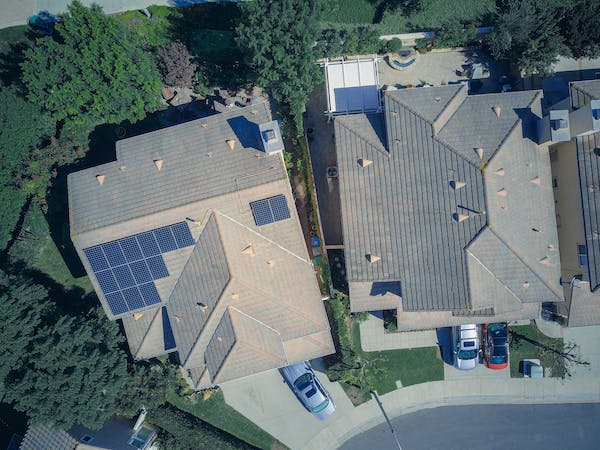A Beginner’s Guide to Solar Energy: Exploring the Different Types of Solar Panels
Solar energy is a renewable, clean, and abundant source of energy that is found all around us. As more people become environmentally conscious, they are turning to solar energy as a way to reduce their carbon footprint and become more energy-efficient. This beginner’s guide to solar energy will explore the different types of solar panels available, as well as some of the benefits and drawbacks of utilizing solar energy.
The two main types of solar panels used to capture the sun’s energy are photovoltaic (PV) and thermal solar panels. PV solar panels convert sunlight into direct current (DC) electricity, which can be used to power appliances, lighting, and other electrical items. Thermal solar panels use the sun’s energy to heat water, which can be used to heat buildings or for domestic hot water.
PV solar panels are generally more expensive than thermal panels, but they can provide a much higher return on investment. PV panels require very little maintenance and are typically more reliable than thermal panels. Additionally, they are the most efficient type of solar panel available and can generate electricity even on cloudy days.
Thermal solar panels are generally cheaper than PV panels and require fewer components to install. They are also easier to maintain, although they are less efficient than PV panels and only generate energy when the sun is out. Thermal panels are often used to heat water for domestic hot water or to heat a building.
Both PV and thermal solar panels offer a range of benefits, including lower energy bills, reduced carbon emissions, and energy independence. Solar energy is also one of the most cost-effective renewable energy sources available and can provide a reliable source of energy even during power outages.
Before deciding which type of solar panel is right for you, it is important to consider your energy needs, budget, available space, and local climate. Both PV and thermal solar panels can be an excellent way to reduce your carbon footprint and save money on energy costs.
What is Solar Power and How Can it Benefit You?
Solar power is a renewable source of energy that is generated from the sun’s rays. It is a clean, sustainable form of energy that can be used to generate electricity and heat for homes and businesses. By harnessing this energy, you can reduce your dependence on traditional energy sources such as coal, oil, and natural gas.
The benefits of solar power are numerous. Firstly, it is an environmentally friendly source of energy that does not produce pollutants or carbon dioxide, unlike other traditional sources of energy. Secondly, solar power is a cost-effective way to generate electricity. It can help you reduce your electricity bills significantly while also reducing your carbon footprint.
Thirdly, solar energy can be used to power a variety of appliances and devices. From providing lighting to powering water heaters and air conditioners, solar energy can be used for a variety of purposes. Furthermore, solar power is an ideal source of energy for remote locations where traditional energy sources are not available.
Finally, the installation of solar panels is relatively easy and straightforward. With their low maintenance requirements, they can last for several years without requiring any major repairs or maintenance.
Solar power is an ideal energy source that can provide many benefits to homeowners and businesses alike. By harnessing this clean, renewable source of energy, you can reduce your carbon footprint and save money on your electricity bills. So, if you’re looking for a cost-effective way to generate electricity, consider investing in solar power.
Solar Energy: An Overview of Cost Savings and Payback Periods
Solar energy has become one of the most popular renewable energy sources in the world today. With the rising cost of electricity, more and more people are turning to solar energy as an alternative to traditional energy sources. Solar energy can provide a variety of cost savings and payback periods depending on the type of setup and geographic location.
The cost savings from solar energy come in two forms: energy savings and tax savings. The energy savings are the direct result of using solar energy instead of traditional electricity. Solar energy can be used to power appliances, heating and cooling systems, and other devices, resulting in lower utility bills. On the other hand, many countries and states offer tax credits and other incentives for using solar energy, which can further reduce the cost of the system.
The payback period for solar energy is the amount of time it takes to recoup the initial investment in the system. This period can vary greatly depending on the size of the system, the local climate, and the amount of energy used. Generally, most solar energy systems have a payback period of between five and twenty-five years.
The cost savings and payback period for solar energy are both important considerations when deciding whether or not to invest in this renewable energy source. By understanding the potential cost savings and payback periods, homeowners and businesses can make an informed decision about whether or not solar energy is right for them.
What is Solar Energy Storage and How Does it Work?
Solar energy storage is a groundbreaking technology that provides the ability to store solar energy for later use. It works by capturing solar energy as it is generated and saving it in a battery for later use. This stored energy can then be used to power homes, businesses, and other facilities when solar energy is unavailable.
Solar energy storage works by using a battery, usually a lithium-ion or lead-acid battery, to capture and store the energy generated by solar panels. The battery is connected to the solar panels, which captures the energy and stores it in the battery. The energy stored in the battery can then be used later when the sun is not available, providing a reliable source of power.
Solar energy storage has a wide range of benefits, including providing a backup power source in case of a power outage, reducing utility costs, and providing a greener source of energy. By storing energy during peak sunshine hours, solar energy storage can also help reduce the strain on the electric grid, which can help keep energy prices low.
Solar energy storage is a revolutionary technology that is changing the way we use and store energy. It is an efficient and reliable way to take advantage of the power of the sun and use it to power homes, businesses, and other facilities.
Solar Energy Solutions for Homeowners: Exploring Tax Credits and Rebates
Are you a homeowner looking to make the switch to solar energy? You’re not alone! With the rising cost of traditional energy sources and the increasing environmental concerns surrounding them, many homeowners are turning to solar energy as an alternative.
When considering a switch to solar energy, it’s important to be aware of the available tax credits and rebates that can help make the transition more cost-effective. Tax credits and rebates can be a great way to make your home more energy-efficient and lower your monthly energy costs.
The federal government offers some of the biggest tax credits and rebates available for homeowners. The Residential Renewable Energy Tax Credit (RETC) is a tax credit worth 30 percent of the total cost of your solar energy system, up to a maximum of $2,
- This credit can be used to offset the cost of the system installation, as well as the cost of the equipment and materials used.In addition to the federal tax credits, many states also offer additional incentives for homeowners who make the switch to solar energy. For example, some states offer rebates or grants to help offset the cost of installing a solar energy system. Depending on the state, these incentives can range from a few hundred dollars to several thousand.
Finally, some local utility companies may also offer their own incentives. These incentives may include discounts on the installation of a solar energy system or reduced electric rates for those who use solar energy.
Making the switch to solar energy can be a great way to reduce your energy costs and help the environment. And with the available tax credits and rebates, it can be more affordable than ever. Take the time to research the incentives available in your area and make the switch to solar energy today!






